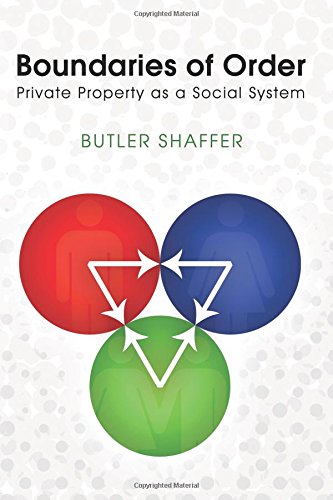
IPFS News Link • Philosophy: Anarchism
Who Owns the State? by Butler Shaffer
• LewRockwell.Com - By Butler ShafferI have come to the conclusion that imperialism and exploitation are forms of cannibalism and, in fact, are precisely those forms of cannibalism that are most diabolical or evil.
– Jack D. Forbes
Recent events across the carnival of hokum midway make evident the nature of political systems, contradicting the articles of faith inculcated into the minds of the young by the state priesthood (i.e., civics class pedagogues). That some amorphous collective known as "We the people" own and direct the agency enjoying a legal monopoly on the exercise of violence across a nation has become a laughable proposition.
The pretense that competition for control of the machinery of state power has been vested in "the people" is often seen in the realpolitick of state action. The process by which popular sovereignty is supposedly exercised (i.e., "democracy") is not as complete as might appear. The election of Donald Trump to the presidency has made increasing numbers of Americans aware of the existence of the "deep state." Unelected and unidentified government officials' power to thwart the results of a duly-constituted election has begun to awaken the suspicions of the dullest minds. While the votes were still being counted, and before the new president had even taken the oath of office, these hidden forces were already speaking of the need to impeach Mr. Trump! That no legal grounds could be found for doing so only increased the intensity, and absurdity of trumped up (pardon the pun) claims against him! The heretofore unasked question "who runs the government" began to blossom within passive minds.
 Boundaries of Order: P... Butler Shaffer Best Price: $11.94 Buy New $11.95 (as of 12:15 EDT - Details)
Boundaries of Order: P... Butler Shaffer Best Price: $11.94 Buy New $11.95 (as of 12:15 EDT - Details)  Popular efforts by the electorate to create, amend, or repeal constitutional provisions or statutes are often met with judicial declarations of their unconstitutionality. Rarely is the question asked: if "the people" are the sovereign political authority, why is their collective will subject to judicial preemption? The same question applies to the charge that people ought not "take the law into their own hands." Whose hands are to manipulate the machinery of state power if not the purported owners thereof?
Popular efforts by the electorate to create, amend, or repeal constitutional provisions or statutes are often met with judicial declarations of their unconstitutionality. Rarely is the question asked: if "the people" are the sovereign political authority, why is their collective will subject to judicial preemption? The same question applies to the charge that people ought not "take the law into their own hands." Whose hands are to manipulate the machinery of state power if not the purported owners thereof?
As long as inquiries into the nature of political systems extend no further than exploring their "deep state" implications (i.e., the covert organizational framework, and persons – be they elected or appointed officials or career bureaucrats who constitute the government-within-the-government) they will never get to the core of the problems they pose to human well-being. They will tend to be seen, rather, as flaws to be remedied within the system itself by "responsible" men and women; the kinds of reforms criticized by Frank Chodorov as wanting to "clean up a brothel and yet leave the business intact." It is the nature of the state itself, including the identity of the persons who own and control its operations, that requires focused, in-depth examination.
I have no quarrel with those who engage in "deep state" inquiries: indeed, such efforts are a good place to start to help people understand the inherently deceitful and corrupt nature of all political systems. A resilient state can withstand the embarrassment of its short-term defects being made public. It may even enhance its trustworthiness by creating remedies and punish wrongdoers in the expectation of making changes to ensure that "problems like this never happen again." This oft-recited mantra has become words of assurance to reinforce Boobus's faith in the system that is systematically destroying mankind!
I have almost completed another book – titled "Please Don't Feed the Cannibals! A Visitor's Guide to the Human Zoo" – in which I explore the nature of political systems from a perspective never taught in a political science classroom. Borrowing from Plato's three-part characterization of political society being comprised of the "men of gold, men of silver, and men of brass;" I treat these classes less glamourously as the Cannibals, the Vultures, and the Zombies. At the top of this pyramidal structure reside the Cannibals, whose lives and interests are sustained by consuming the energies of the Zombies, who have little or no control over the system, and who have been conditioned to be but resources for the Cannibal class. Between these two classes are the Vultures, whose roles are also to serve the Cannibals, but in controlling and providing the Zombies for the Cannibals. In the Vulture class are to be found politicians, judges, career bureaucrats, members of the mainstream media, military, many church officials, teachers and academicians, members of the entertainment industry, writers, and numerous others, all of whom derive their incomes and social status from helping to shape the minds and control the bodies of the subservient Zombies.



























